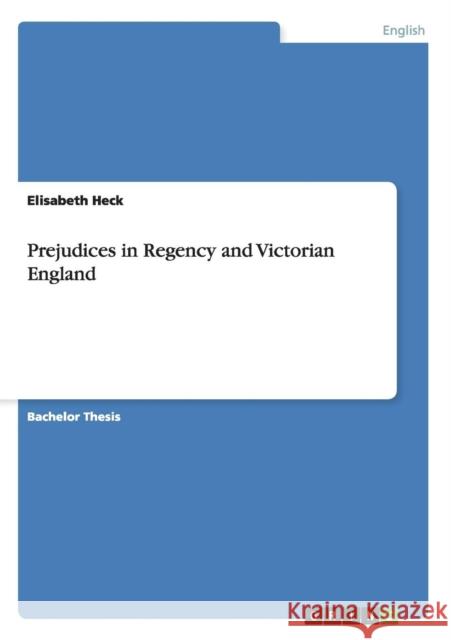Prejudices in Regency and Victorian England » książka
Prejudices in Regency and Victorian England
ISBN-13: 9783656840060 / Angielski / Miękka / 2014 / 42 str.
Bachelor Thesis from the year 2012 in the subject English Language and Literature Studies - Literature, grade: 1,3, University of Bamberg, language: English, abstract: This work analyses prejudices in Elizabeth Gaskell's "North and South" and Jane Austen's "Pride and Prejudice." Both novels employ a wide range of prejudices which I will compare in categories such as gender, space and class. The thesis basically investigates the constitution of prejudices in the two novels. Moreover, it explores their causes and how the characters eventually overcome them. My aim is to draw a concise and structured overview of the prejudices in "North and South" and "Pride and Prejudice" as well as to compare the characters' ways of dealing with them. As a means to a better understanding of my argumentation I will begin with a brief presentation of Regency and Victorian society focusing on their conventions and value systems. In this context I want to inform about the strictly organised class system, the role of women, as well as regional ideological differences between the North and South of England in both eras which resembled each other to a great extent due to their historical proximity. Beginning then with the practical part of the thesis, I first focus on NS and then on PP; in both cases the interpretation of prejudices is performed based on three categories: class, gender and space. Corresponding to each nove individually, I explore these subgroups on account of their relevance within the book. That is, analysing NS I first refer to the spatial dimension, simply because, in my view, the contrast drawn between North and South England is the starting point for all other types of prejudices in this novel. The same principle applies to PP, where all prejudices emanate from the class hierchary presented by Austen; hence I start discussing the social dimension. To conclude my thesis there will be a thorough comparison of both novels with regard to the presented prejudices.











